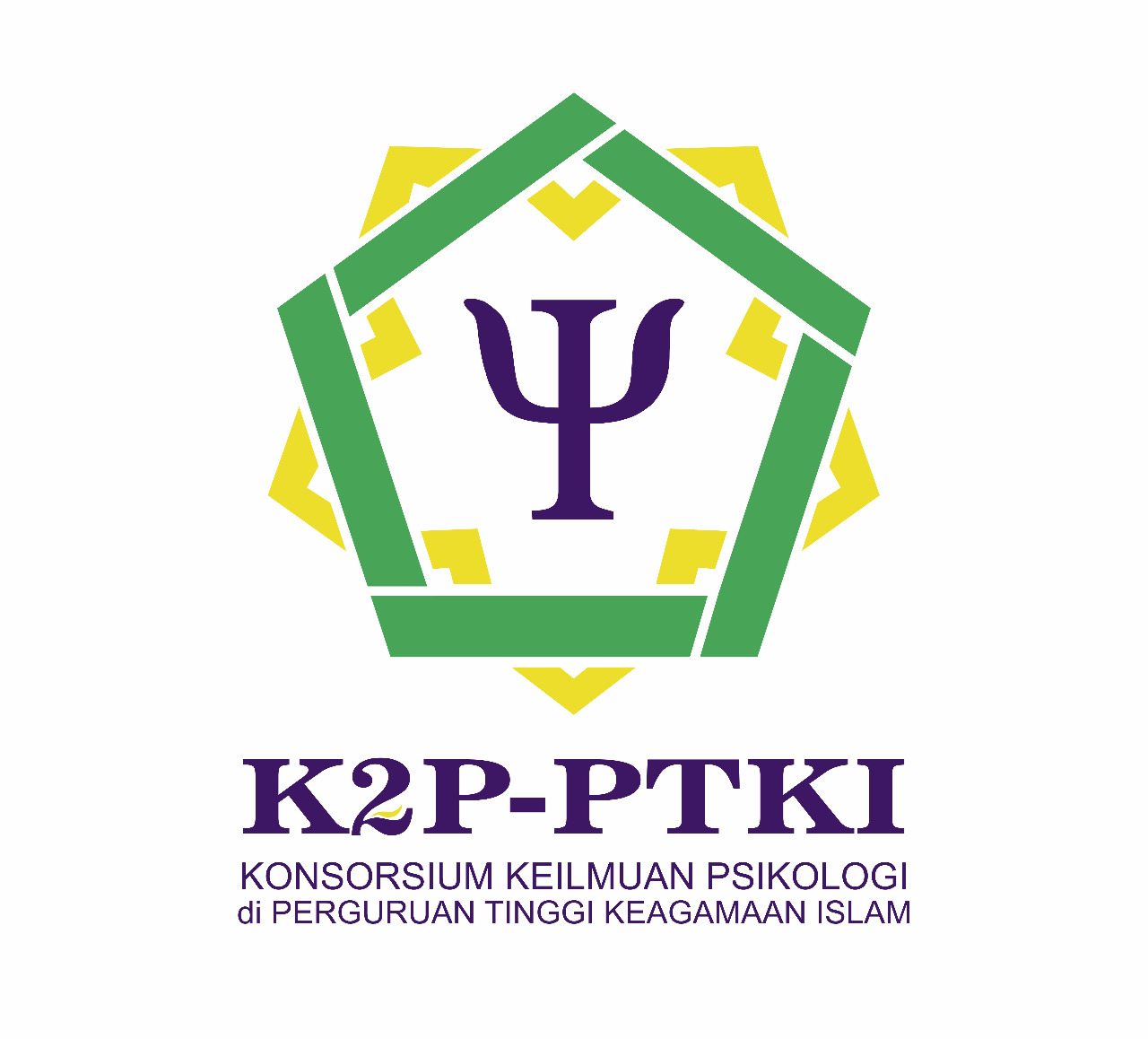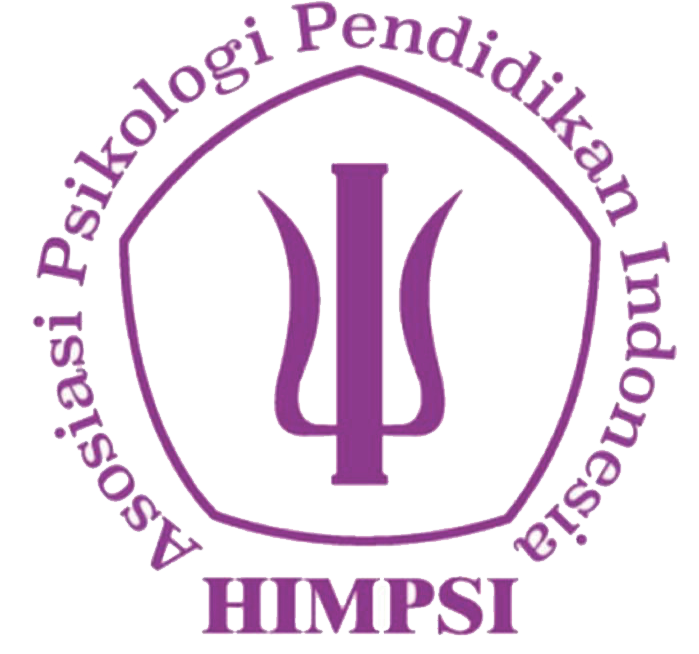Dukungan sosial teman sebaya terhadap optimisme pada mahasiswa double degree
Abstract
Abstract: The changing of learning from direct methods to indirect methods without direct interaction in class, is a challenge for double degree students in D3 English Program at Merdeka University of Malang. The problems found are related to the low level of optimism. This study aims to determine the effect of peer social support on optimism in double degree students. The research method used is quantitative. The sampling technique is a proportionate stratified random sampling of 90 students from 148 population of double degree programs. The method of data collection using Likert scale. The scale items for peer social support (51 valid) and optimism (38 valid) with a reliability coefficient of 0.949 peer social support and 0.918 optimism. Data analysis used simple linear regression analysis with SPSS v.26 program. The results of hypothesis testing show a significance value of 0.000 < 0.05, which means that there is a significant influence between peer social support on optimism with an effective contribution of 33.4%.
Keywords: double degree students; optimism; peer social support
Full Text:
PDF (Bahasa Indonesia)References
Aprilia, E. D., & Khairiyah, Y. (2018). Optimisme menghadapi persaingan dunia kerja dan adversity quotient pada mahasiswa. Seurune : Jurnal Psikologi Unsyiah, 1(1), 18–33. https://doi.org/10.24815/s-jpu.v1i1.9922
Astuti, B. (2019). Profil kemandirian belajar mahasiswa bimbingan dan konseling. Jurnal Penelitian Ilmu Pendidikan, 12(1), 63–74. https://doi.org/10.21831/jpipfip.v12i1.24327
Azman, E. (2018). Hubungan antara kepercayaan diri dengan optimisme dalam menghadapi dunia kerja pada mahasiswa semester akhir di Fakultas Psikologi. In Doctoral dissertation, Universitas Islam Negeri Sultan Syarif Kasim Riau. https://repository.uin-suska.ac.id/13943/
Azwar. (2015). Metode Penelitian. Yogyakarta: Pustaka Belajar.
Baldry, S., Märtsin, M., & Eivers, A. (2018). Traveling without a destination? A Dialogical analysis of professional identity construction among australian Double Degree Psychology Students. Identity, 18(2), 94–108. https://doi.org/10.1080/15283488.2018.1447483
Berdida, D. J. E., & Grande, R. A. N. (2023). Academic stress, COVID-19 anxiety, and quality of life among nursing students: The mediating role of resilience. International Nursing Review, 70(1), 34–42. https://doi.org/10.1111/inr.12774
Biber, D. D., Melton, B., & Czech, D. R. (2022). The impact of COVID-19 on college anxiety, optimism, gratitude, and course satisfaction. Journal of American College Health, 70(7), 1947–1952. https://doi.org/10.1080/07448481.2020.1842424
Carver, C. S., & Scheier, M. F. (2009). Optimism: Handbook of individual differences in social behavior. New York: APA.
Chang, W. W., Zhang, L., Wen, L. Y., Su, H., & Jin, Y. L. (2021). Association between online self-directed learning ability and negative emotions among college students during the COVID-19 Pandemic: A cross-sectional Study in Anhui Province, East China. Frontiers in Psychology, 12(November), 1–10. https://doi.org/10.3389/fpsyg.2021.720911
Cohen, S., Underwood, L. G., & Gottlieb, B. H. (2000). Social support measurement and intervention. New York: Oxford University Press. https://academic.oup.com/book/1041
Daulay, N., Dan, M., Belajar, K., & Mahasiswa, P. (2021). Motivasi dan kemandirian belajar pada mahasiswa baru. Al-Hikmah: Jurnal Agama Dan Ilmu Pengetahuan, 18(1). https://doi.org/10.25299/al-hikmah:jaip.2021.vol18(1).5011
Desmita. (2010). Psikologi perkembangan. In PT. RemajaRosdakarya.
Dhitaningrum, M., & Izzati, U. A. (2013). Hubungan antara persepsi mengenai dukungan sosial orang tua dengan motivasi belajar siswa SMA Negeri 1 Gondang Kabupaten Tulungagung. Jurnal Mahasiswa Universitas Negeri Surabaya, 1–6. https://ejournal.unesa.ac.id/index.php/character/article/view/1887
Huang, L., & Zhang, T. (2022). Perceived social support, psychological capital, and subjective well-being among college students in the context of online learning during the COVID-19 Pandemic. Asia-Pacific Education Researcher, 31(5), 563–574. https://doi.org/10.1007/s40299-021-00608-3
Hwang, E. H., & Kim, K. H. (2023). Relationship between optimism, emotional intelligence, and academic resilience of nursing students: the mediating effect of self-directed learning competency. Frontiers in Public Health, 11(May), 1182689. https://doi.org/10.3389/fpubh.2023.1182689
Kurniawan, S., Priyatama, A. N., & Karyanta, N. A. (2015). Hubungan Konsep diri dengan optimisme dalam menyelesaikan skripsi pada mahasiswa Prodi Psikologi Fakultas Kedokteran UNS. Jurnal Ilmiah Psikologi Candrawijaya, 275–285. http://candrajiwa.psikologi.fk.uns.ac.id/index.php/candrajiwa/article/view/97/88
Matthews, J. S., Ponitz, C. C., & Morrison, F. J. (2009). Early gender differences in self-regulation and academic achievement. Journal of Educational Psychology, 101(3), 689–704. https://doi.org/10.1037/a0014240
McGinnis, A. L. (1995). Kekuatan Optimisme. Mitra Utama.
Okabe-Miyamoto, K., Durnell, E., Howell, R. T., & Zizi, M. (2022). Video conferencing during emergency distance learning impacted student emotions during COVID-19. Computers in Human Behavior Reports, 7, 100199. https://doi.org/10.1016/j.chbr.2022.100199
Prasetyawati, F. Y., Pradana, R. G., & Mukhibun, A. (2021). Studi komparatif perbedaan optimisme pembelajaran daring pada mahasiswa berdasarkan jenis kelamin. Jurnal Pendidikan Dompet Dhuafa, 11(1), 1–9. http://jurnal.pendidikandd.org/index.php/JPD/article/view/246
Rasheed, N., Fatima, I., & Tariq, O. (2022). University students’ mental well-being during COVID-19 pandemic: The mediating role of resilience between meaning in life and mental well-being. Acta Psychologica, 227(May), 103618. https://doi.org/10.1016/j.actpsy.2022.103618
Russell, A. W., Dolnicar, S., & Ayoub, M. (2008). Double degrees: Double the trouble or twice the return? Higher Education, 55(5), 575–591. https://doi.org/10.1007/s10734-007-9076-2
Sarafino, E. P., & Smith., T. W. (2011). Health psychology: Biopsychosocial interactions. In John Wiley & Sons.
Seligman, M. E. P. (2006). Learned optimism: How to change your mind and your life. Vintage Books.
Septiawati, S. (2017). Pengaruh Dukungan sosial dan kepribadian ekstraversi terhadap minat berwirausaha pada mahasiswa. Jurnal Ecopsy, 4(2), 77. https://doi.org/10.20527/ecopsy.v4i2.3848
Ushfuriyah. (2015). Hubungan antara dukungan sosial dengan optimisme mahasiswa psikologi dalam menyelesaikan skripsi. In Doctoral dissertation, Universitas Islam Negeri Maulana Malik Ibrahim. http://etheses.uin-malang.ac.id/1226/
Wahyu, N. (2019). Hubungan dukungan teman sebaya dan konsep diri dengan optimisme mahasiswa yang sedang mengerjakan skripsi. In Doctoral dissertation, UIN Raden Intan Lampung. http://repository.radenintan.ac.id/id/eprint/7840
Wider, W., Taib, N. M., Khadri, M. W. A. B. A., Yip, F. Y., Lajuma, S., & Punniamoorthy, P. A. (2022). The Unique role of hope and optimism in the relationship between environmental quality and life satisfaction during COVID-19 pandemic. International Journal of Environmental Research and Public Health, 19(13). https://doi.org/10.3390/ijerph19137661
DOI: https://doi.org/10.18860/psikoislamika.v20i1.18294

This work is licensed under a Creative Commons Attribution-NonCommercial-ShareAlike 4.0 International License.

------------------------------------------------------------------------------------------

pSIKOISLAMIKA by http://ejournal.uin-malang.ac.id/index.php/psiko is licensed under a Creative Commons Attribution-NonCommercial-ShareAlike 4.0 International License.


.jpg)


.jpg)





